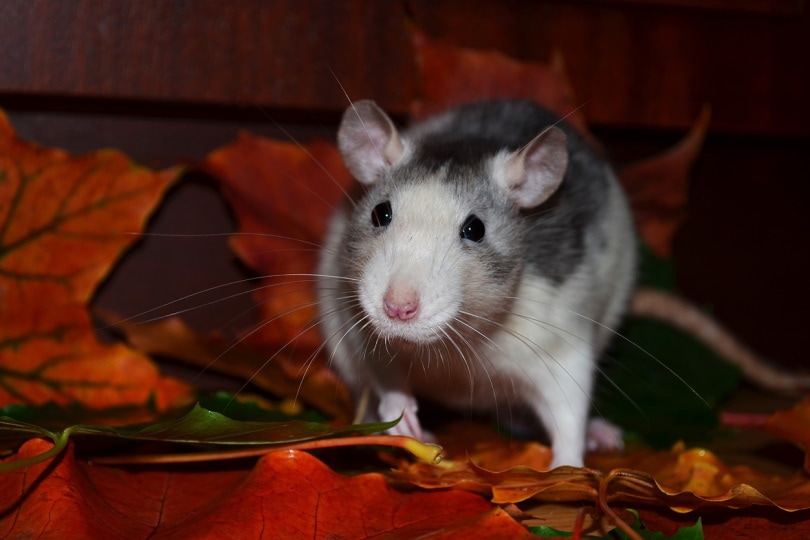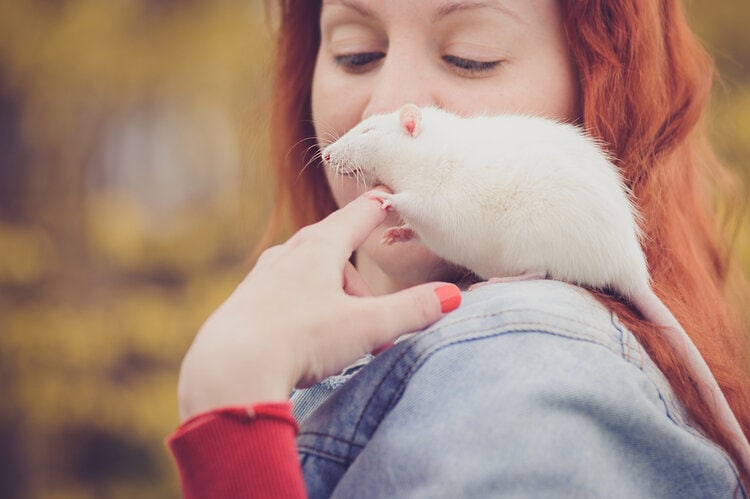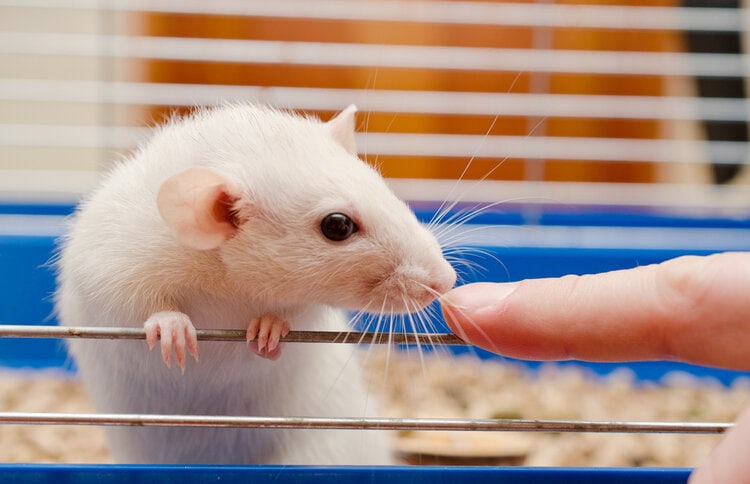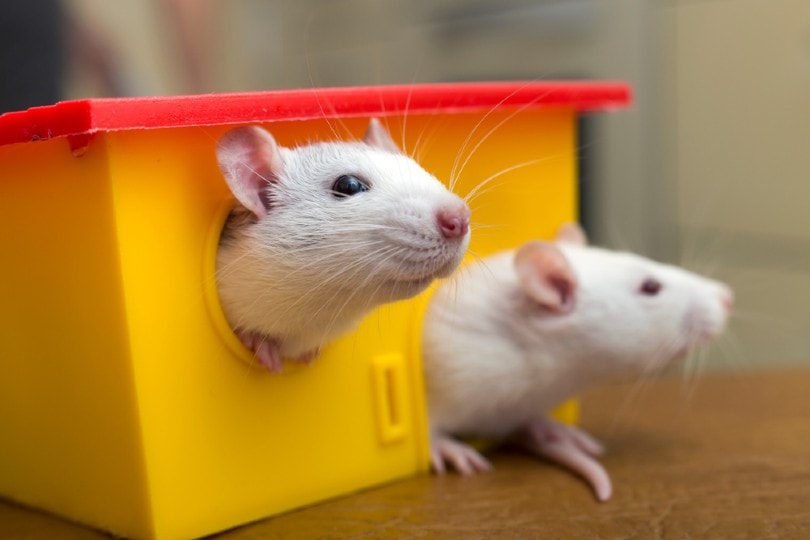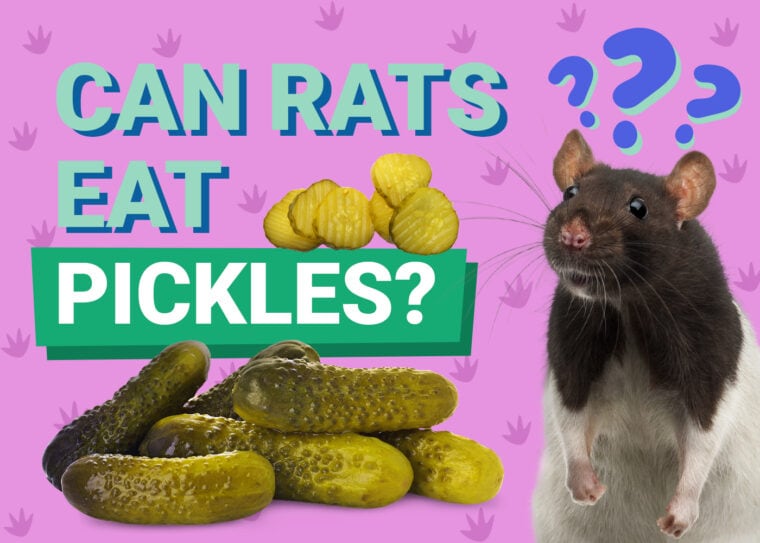
Truthfully, rats can eat just about anything! They’re one of the few animals that can safely eat chocolate, for instance.
Pickles also fall in the “okay” category. You shouldn’t give them to your rat that often due to the high amounts of salt that they contain. However, they aren’t toxic. Your rat will be okay if they get a bite or two of a pickle. Read on to learn more about rats and pickles.
Why Pickles Are Not the Best for Rats
We don’t recommend adding much pickle to your rat’s diet. High salt levels can cause some issues, though rats are more tolerant of salt than other animals. Salt won’t affect them as highly as a bird, for instance. But that doesn’t mean it’s good for them!
Like many fermented foods, pickles are supportive of gut health. They include good bacteria, which can support your rat’s overall digestion. Other fermented veggies are similar, such as sauerkraut and kimchi.
However, rats rarely eat pickles. Their pungent smell turns off many rats. As a species, they tend to dislike strong-smelling foods. This behavior is partially evolutionary. Many strong-smelling foods are toxic to rats, like onions and garlic. Therefore, they evolved to avoid things that smelled particularly strongly.
While pickles are perfectly safe for rats, many won’t touch these stinky cucumbers.
The Potential Problems With Pickles
There are many types of pickles out there and quite a few ways to make pickles. Not all these types and methods are necessarily safe for your rat.
Often, pickles are made with primarily salt as the pickling agent. If you want to make pickles, you have to add salt—it’s in the definition of a pickle.

Salt
Some pickles have more than others. Therefore, it is essential to check the ingredient list and see exactly how much salt a particular pickle brand has.
Preferably, you want to feed your rat as little sodium as possible.
While they do need some sodium, they don’t need nearly as much as we humans do. After all, rats are incredibly tiny compared to us. Therefore, they don’t require as much salt to stay functional.
The amount of salt added to human foods (including pickles) is often far too much for most rats. However, rats are a bit more tolerant of extra salt than other animals. Still, problems can develop over the long term if rats are fed high-sodium diets.
Similarly to people, rats have been found to develop hypertension and renal injury if fed too much salt over their lifespan. Of course, this study used a large amount of salt — a pickle will not cause renal failure. Your rat would need to eat salt for days.
This study should make you think twice about regularly feeding pickles to your rat, though.
Sugar
Salt is the primary method of making pickles. However, sugar can also be added. You always have to add a decent amount of salt to make pickles, but some of this salt can be replaced with sugar.
This method creates a slightly sweeter and slightly less healthy pickle for your rat.
Excess sugar can cause many problems for our rodent friends. For instance, it can affect our rat’s molars and lead to teeth decay. A rat’s incisors are renewed throughout their lifespan, but not their molars. Once they’re affected by sugar, there is little that you can do about it. There aren’t many rodent dentists out there, after all.
Sugar can cause changes in gut flora. Many of the good bacteria in a rat’s stomach don’t eat sugar. But many of the harmful bacteria do. Therefore, a diet high in sugar can lead to excesses of certain gut flora.
Overconsumption of sugar has also been linked to aggression, mainly when consumed at a young age. This phenomenon likely occurs due to the dysregulation of the immune system, leading to increased inflammation throughout the rat’s body.
Some types of sugar are suitable for rats in small amounts, such as the sugars found in fruits. Berries are nutritious, for instance.
However, pickles do not fall into this category. The sugar found in pickles is added sugar, not the natural sugar found in fruit. It’s often refined and not healthy by any means.
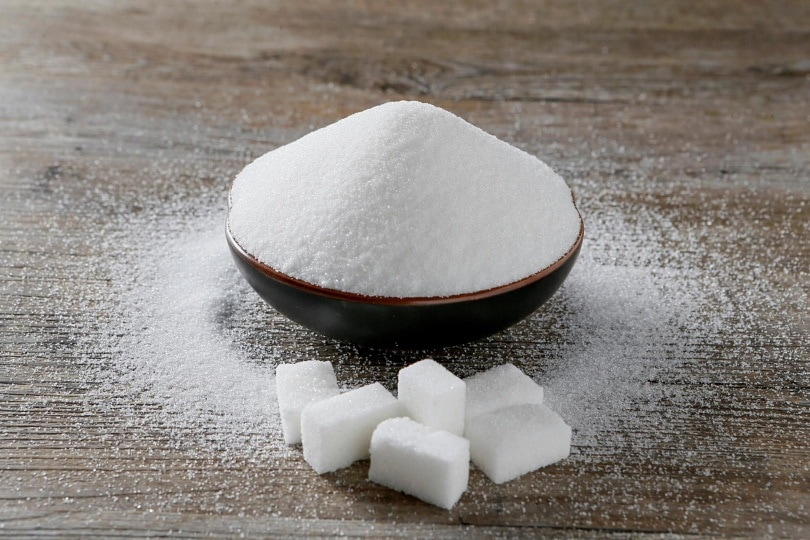
What Type of Pickle Should I Feed My Rat?
We recommend choosing pickles that are moderately low in sodium and contain little sugar.
You don’t want to choose the pickle containing the most sodium, but you also don’t want to pick one that replaces some sodium with sugar.
Sugar is much worse for rats than sodium, especially at higher levels. Therefore, it is best to choose a moderately salty pickle than one utilizing sugar as the pickling agent.
When you head to the store to pick out a pickle for your rat, this is what we recommend doing:
Can Rats Eat Flavored Pickles?
Once upon a time, there were only plain pickles. Then pickle companies realized that the people would pay good money for fancy pickles. This discovery led to the creation of flavored pickles. Now, even if you just like eating pickles straight out of a jar, you can find a whole host of options. Some of these taste good on a hamburger too.
However, just because we enjoy flavored pickles doesn’t mean we should share them with our pet rodents.
The main problem with these pickles is that they include a wide variety of different ingredients. Different pickles have different flavorings added. Some of these are entirely safe, but others are not.
Either way, none of them are particularly healthy. Many flavored pickles have added sugar, which can be troublesome for rats.
Therefore, we recommend avoiding flavored pickles. Choose plain pickles when you’re looking for a snack for your rat.
Flavored pickles probably won’t kill a rat, but they aren’t the best options either.

Can My Pet Rat Eat Dill Pickles?
Yes, dill pickles are probably among the better options for rats. They are primarily fermented in vinegar, not salt. However, they still have a small amount of salt added.
Sour pickles are much higher in salt, on the other hand. They don’t utilize vinegar as a fermenter, so they need more salt to compensate.
Sweet pickles are just what they sound like: sweet. They’re made with extra sugar, which is a poor option for your rat.
If your two options are between these three types of pickles, we recommend choosing the dill pickle. It will likely be the best option for your rat. Just be sure that it isn’t flavored or made with excessive amounts of added sugar.
However, dill pickles often have a more pungent smell due to the vinegar. Many rats don’t like this and refuse to eat them.
There is no reason to force your rat to eat pickles, though. Therefore, we typically don’t recommend searching out pickles that are easier on their noses. Usually, the pickles that they’ll find the tastiest are also the ones that are unhealthy, such as sweet pickles.
Conclusion
Pickles are a completely okay option for your rat. They do contain vitamins and minerals that rats benefit from. Plus, their fermented nature makes them great for a rodent’s microbiome.
However, there are potential problems with pickles too. They can be high in sugar and salt, neither of which is suitable for rats. You’ll need to read the ingredient lists before choosing a pickle to give to your rat.
Not all pickles are the same. Choosing the right one for your rat is paramount for their health.
Furthermore, many rats won’t eat pickles. They usually don’t like strong-smelling foods. Many of the foods that are toxic to rats also smell strong, like onions. Therefore, their dislike of strong-smelling foods helps keep them safe. While pickles are not toxic, many rats will avoid them just because they smell weird.
Feel free to offer a pickle to your rat, but don’t be surprised if they don’t eat it.
See Also:


